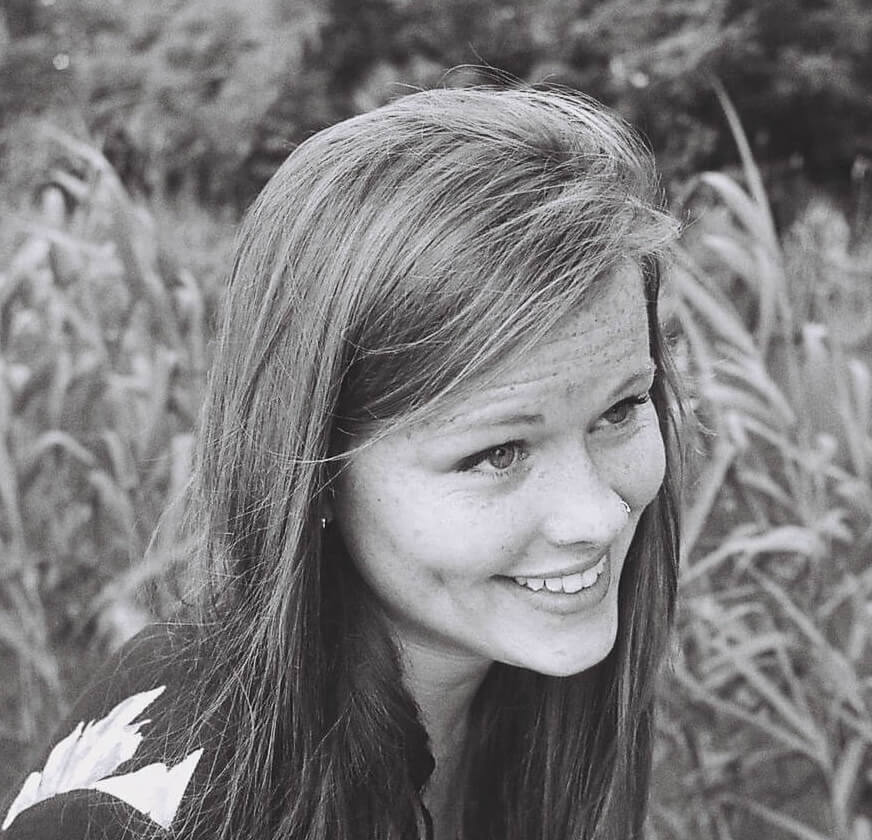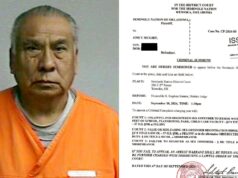
AUSTIN, Texas — On election night 2016, in a small Missouri town about an hour outside of St. Louis, Becky Lane unplugged from the news media. Instead of sitting tensely in front of the election coverage, she snuggled in to watch Netflix with her high school-aged son — and she warned her husband and daughter not to talk to her about election news until the next day.
But then her husband, Kerry, an operations manager for a company that lines sewer pipes, broke the news to her.
“I don’t think he could help it,” Becky said with a laugh.
Five-hundred miles further north that same night, Meghan Jones — Kerry and Becky’s 25-year-old daughter — watched with neighbors in Columbia Heights, Minnesota. Meghan’s husband, Gabe, watched from a hotel room in a small Minnesota town where he was temporarily stationed for work. Gabe and Meghan Jones are a biracial couple.
“I was sick from it,” Meghan said about her reaction the next day. “I really couldn’t believe there were that many people that were OK with what Trump was saying.”
Meghan’s husband offered his perspective.
“I think why Trump got elected is because a lot of people felt like they didn’t matter,” Gabe said, connecting the language of what he calls the “new civil rights movement” with today’s political divisions.
When asked how she plans on coping with the prospect of discussing politics with her parents in Missouri over the holidays, Meghan gave a one-word answer: “Cigarettes.”
“We don’t talk about it too much,” said Kerry, Meghan’s father. “Meghan, you know, she voted for Hillary … we know there’s just no middle ground.”
Meghan tends to agree.
“We’re on two different planets of belief right now,” she said. “We don’t talk about politics, but the little things that he has said and his very avid support of Trump, as his daughter, that’s huge. That’s so disrespectful. You’re OK with someone talking about women like that? We’ve taken a step back. There’s a loss of trust there … it’s really hard to have those positive conversations.”
Family a microcosm of national divide
The opinions in these two households — explained through phone interviews — underscore broad political division across the entire United States as well as the tribalistic nature of the dialogue within each side’s narrative.
While Meghan and Gabe are focused on the new civil rights movement and the injustices America’s minority populations face, Kerry and Becky are consumed with issues of class, political agency and faith. The disconnect makes it hard to discuss policy and stops conversations before they’ve started.
The Lane family isn’t alone: Political division in the United States has increased significantly since the terms of President Dwight Eisenhower.
In the aftermath of the election, much has been written and discussed about the anger of the working class against the elite and powerful in Washington. Some say the populist movement in the United States is connected to the same kinds of impulses that led to global pushbacks against integration, immigration and the European Union.
Discontent among working class people was consistently overlooked by those with serious political power — until Donald Trump arrived on the scene. He successfully mobilized two camps of voters: those who felt disenfranchised by the decline of white supremacy, and those who merely felt the elites had excluded them from the political process.
‘Washington elites,’ faith-based voting
That’s the feeling of the Lanes in Missouri, anyway.
“Beck and I, we talk about how little we can affect,” Kerry said. “We’ve gone so far down the road that Washington and the elites, they’re all on the same team. They’re Republicans and Democrats, but when push comes to shove, they’re the Washington elites.”
For Becky, political engagement is mostly about her Christian faith. When asked for whom she voted, she begrudgingly said Trump, her voice soft and caring in her explanation; her words compassionate and measured in tone.
“It’s not politics I care about, it’s issues and values,” she said. “For me, sanctity of life would be at the top. That’s the most important value to me.”
She mentions partial-birth abortion and Mike Pence’s strong pro-life background as bolstering her confidence that she made the right decision in voting for Trump.
A shared desire for common ground remains
Even in the midst of this election’s divisiveness, the Lane and Jones families expressed similar desires for moving the country forward.
“We all want a better country,” Becky Lane said. “We all want the best for people, but how we get to that place is seen totally differently.”
Kerry spoke about the possibility of finding common ground on social issues like abortion.
“I think, somewhere, we’re not as far apart as we’d like to think,” he said. “At some point, everybody would agree, ‘OK. I don’t like it, but I can give you that much if you’re gonna give me this much.’”
Meghan, too, has hopes for agreement on a broader scale.
“I think generally, like if you look at the big picture with people, most people are going to agree,” she said. “It’s when you get down to the specifics that they’re not going to agree.”
In her own discussions with friends and family, she cites historical context and more education as a way to improve the discussion.
They agree, too, that media have failed them, and that politicians need to be held to a higher standard of truthfulness.
“I don’t know how it could be done, but we gotta get some truth back into it,” Kerry said. “I mean, for a politician to get in front of a crowd and blatantly lie, I think there needs to be some sort of recourse. Because until then, it’s not gonna get better.”
In moving forward, Meghan stresses the importance of discussion across party lines.
“It’s a lot of conversations, hard conversations,” she said. “It has to be when everybody’s ready, and maybe not right now, but when people can kind of calm down and have productive conversations.
“I think we’re gonna be in the same spot four years from now if we don’t do something about this.”






















